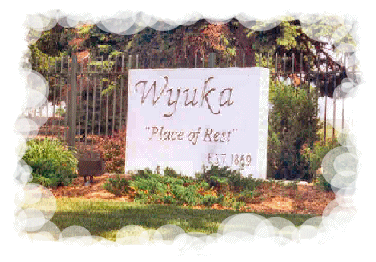

Vol IV. - January-March,
1921 No.1
WYUKA CEMETERY--ORIGIN OF THE NAME
The secretary of the Wyuka cemetery calls up to ask the origin of the cemetery name. This inquiry has frequently been made of the Historical Society. It may be well to put in printed form information upon this subject. In the Dakota or Sioux language the intransitive verb wanka means to rest, to lie down.
To recline, kun-iwanka. The name of a couch is owanka. The pronunciation of wanka is very much as though it were spelled wong-kah. In the Dakota or Sioux language pronouns are incorporated with the verb, but for the third person singular no incorporate pronoun is used. In order then, to find the simplest form of the verb in Sioux we look to the third person singular instead of to the infinitive as in English. Therefore wanka exactly means in Dakota, he rests or he lies down.
The Nebraska legislature in 1869 passed the act providing that eighty acres of land belonging to the state of Nebraska, not more than three miles distant from the state capitol building, should be selected by a board of trustees and approved by the governor as a state cemetery. The act does not name the cemetery. The name was given after the site had been located and the tradition associated with the name, is that it was "Indian" for resting place.
This is approximately correct. Lincoln and Wyuka cemetery are located in what was Otoe territory. The Otoe language is a dialect of the Dakota or Sioux language. The Omaha and Ponca languages are likewise dialects of the Dakota. The conversion of the Otoe word "wong-kah" into Wyuka is easily understood. Very commonly Indian words are mispronounced, due to the fact that the white man's ear does not correctly catch the exact pronunciation of the Indian tongue. There yet remains to be determined who of the early pioneers of Lincoln found and bestowed the name Wyuka on the state cemetery.